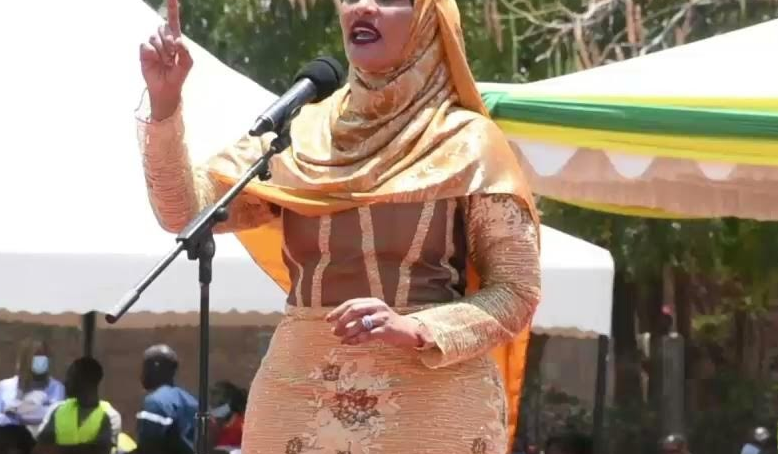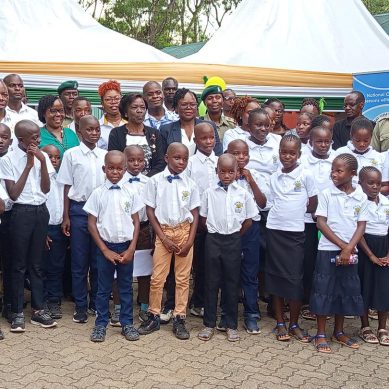
National Gender and Equality Commission (NGEC) has warned that interference with the education funding will result in indirect exclusion of learners from poor families and marginalised communities.
According to the commission’s Chair Rehema Jaldesa, NGEC is particularly concerned that shake-ups in basic education funding will lead to a further deterioration in education outcomes particularly for school-going girls in marginalized counties.
Speaking on the side-lines of the commission’s annual staff summit held at the FK Resort in Nyeri, Ms Jaldesa noted that already up to 40 per cent of girls aged between 15-19 years in some counties are either pregnant or raising children. She attributed the grim statistics partly to inadequate incentives for the education sector and warned that inadequate funding could further widen the education gap and lead to increased dropout rates due to early pregnancies, poverty and harmful cultural practices.
“Education outcomes are closely tied to how basic education is funded. The commission welcomes the reassurance by Education Cabinet Secretary Julius Migos Ogamba that the government’s capitation policy remains unchanged. I will be guided by the reassurance that we got from the head of state who said that capitation will remain Ksh22,000 ($170),” the chair said.
“However, we caution that further delays or gaps may result in indirect exclusion of learners contrary to Article 53 of the Constitution, which guarantees every child the right to free and compulsory basic education. As a commission ours is to ensure that we have audited the schools that are reported to have closed down or are almost closing down because of the huge debts. We intend to follow up because it involves our special interest groups, the children,” Jaldesa observed.
The chair revealed that the commission has already taken immediate steps to address growing education gaps for school going girls in marginalised counties. She said that NGEC is set to launch a rapid assessment in Tharaka-Nithi, Wajir, Mandera, Samburu, Turkana, Migori, Bungoma and Kilifi counties on the factors affecting girls’ education.
She also noted that the commission has also set up a National Gender and Education Committee to facilitate the commission’s data and evidence gathering mechanism which will inform gender inequality interventions.
“Internally, NGEC is reviewing its systems to align with gender transformative standards and improve our institutional accountability. As a commission we have commenced an audit to understand, backed with data, where the challenge is,” Jaldesa said.
She accompanied by the Commission’s Vice-Chair Thomas Koiyer and Commissioners, Caroline Lentupuru, Dr Margaret Karungaru, Dr Purity Ngina and Michael Nzomo.
She said that the commission is equally alarmed by the growing number of sexual abuse and harassment reported in schools. She noted that the commission is investigating a number of harassment cases where teachers have been implicated as the perpetrators including a Maikona Girls in Marsabit, where 36 girls were caned by their teachers for failing to celebrate their school’s victory in 2025 drama and music festivals. She said it is worrying to see that some of the people who had been entrusted with the duty of protecting the children in schools had turned out to be the prime violators of their rights.
She, however, noted that as part of its interventions, the commission has already written to the teachers’ employer – Teacher Service Commission (TSC) – calling for intensified oversight on teachers’ conduct and enforcement code of discipline for teachers guilty of abuse of learners.
“We acknowledge the Ministry of Education and TSC’s immediate and long-term responses to address this. We have formally written to them urging them to enforce disciplinary action in reported cases, strengthen school-level reporting mechanism, integrate GBV prevention into teacher’s appraisal and expand Sexual, Gender-Based Violence awareness in the curriculum,” she said.
At the same time, reiterated the commission’s commitment to upholding the rights of the marginalised groups. She said that to expedite the delivery of justice for the victims of sexual and gender-based violence, the commission has established six gender-based violence courts with plans to establish additional courts being underway.
“There is a delay with the judicial process. There are bureaucracies in the processes that are involved, gathering evidence, getting witness statements. However, through the advisory from the commission we have been able to establish six gender-based violence courts and we are still in talks with the Judicial Service Commission to increase more courts to handle cases of gender based violence,” she said.
- A Tell Media / KNA report /By Wangari Mwangi







